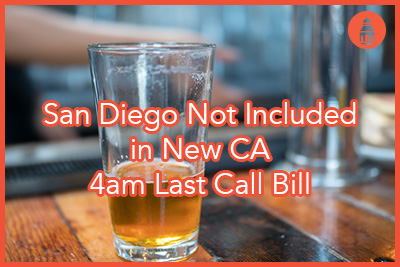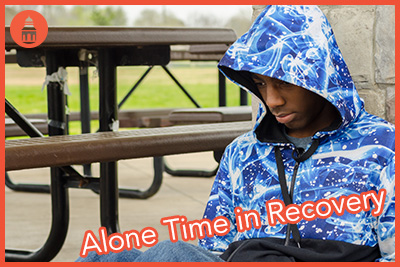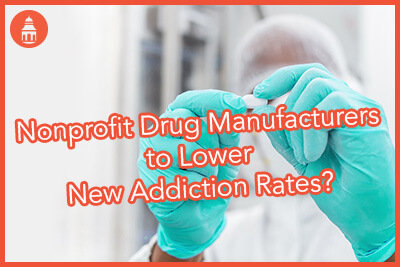As more and more states legalize marijuana – not only for medicinal use but for recreational use as well – the debate on different aspects of how best to protect the community and manage the new industry rages one.
The National Conference of State Legislatures, a nonpartisan national group that represents all state legislatures, is making headlines by asking Congress to let the states that have legalized the drug for any purpose create their own set of standards and policies on how best to manage the issue. They are asking that the White House stay out of it when it comes to each state determining how best to set regulations, laws, and limits around the use of marijuana, according to US News & World Report.
In a resolution set forth in a policy statement, the group says that “members have differing views on how to treat marijuana and hemp in their states.” The organization “believes that states and localities should be able to set whatever marijuana and hemp policies work best to improve the public safety, health, and economic development of their communities.”
Federal Law
Currently, marijuana is still a Schedule I substance under federal law. This means that it is legal for no use in the United States – medicinal or recreational. It is still illegal federally to buy, sell, grow, distribute, possess, or use marijuana. However, when Colorado legalized marijuana for recreational use and the state of Washington decriminalized the drug in 2013, the US Justice Department said that they would not take action against those laws but would instead focus on enforcing any potential criminal issues related to the new laws (e.g., stopping use of the drug by minors and prosecuting those who sold the drug to teens and children).
Transitioning out of a Prohibition Era
Many compare the federal restrictions against marijuana use to the laws prohibiting alcohol that were implemented in the early 1900s.
New Hampshire State Representative Renny Cushing says: “I think there’s every indication that a sea change is taking place in the country. People are realizing it’s the end of prohibition, the parallels are very similar to what happened when the US realized the prohibition of alcohol was a failed public policy.”
However, the difference is that when Prohibition was repealed, it was done on a federal level and implemented immediately, not slowly overturned state by state. Currently, 23 states, Guam, and the District of Columbia have legalized medical marijuana, and in November 2014, the District of Columbia, Oregon, and Alaska legalized marijuana for recreational use as well. A number of states have similar legislation in the works. It may take a while, and there will like be some hold outs, but it appears that legalization of marijuana is something that the American people want. It is likely that federal laws will be updated accordingly as well. In the meantime, it remains to be seen how state laws will evolve and change to make sure that communities are protected and the debate over how best to manage this process continues.
Risks and Rewards
Like other substances that are addictive but legal, there may be rewards as well as obvious risks to use of the drug. If the medical community and researchers come together to standardize the prescription of marijuana and determine its efficacy at different doses for the treatment of different disorders, then it could be a great gift to patients who are struggling and could benefit from the medication.
However, like prescription painkillers, sedatives, and stimulants that also offer medical benefits to patients, marijuana can be abused. It is an addictive substance, and even if patients initially gain some benefit from use of the drug, they can develop a tolerance, cravings, and withdrawal symptoms when they are without the drug – all signs of addiction. Additionally, if negative consequences of use and abuse of the drug begin to pile up (e.g., loss of traction at work or school, problems in personal relationships, health problems, mental health issues, etc.), and the person is still unable to moderate use of the substance or quit using it entirely, it is a sign that help is necessary.
Independent Choice
 States are asking the federal government for the freedom to dictate the laws that will best serve their community. It is a request not unlike the American people telling their lawmakers that they would like the freedom to choose for themselves whether or not the use of marijuana – or alcohol – is right for them, rather than having lawmakers simply decide that no one can use any amount of the substance for any reason.
States are asking the federal government for the freedom to dictate the laws that will best serve their community. It is a request not unlike the American people telling their lawmakers that they would like the freedom to choose for themselves whether or not the use of marijuana – or alcohol – is right for them, rather than having lawmakers simply decide that no one can use any amount of the substance for any reason.
It puts the burden of recognizing when there is a problem that requires help onto individuals as well as their families. When there is a prescription for a substance, it can be difficult to tell the difference between the side effects of regular use and signs of potential abuse of the drug. Families and individuals who live in states where marijuana is legal for any purpose are encouraged to:
- Pay attention to any changes that may occur (e.g., changes in personality, health, habits, and relationships)
- Avoid getting behind the wheel of the car after using the drug
- Talk to their doctor or pharmacist about potential interactions of marijuana with other prescription medications
- Ask for help if use of the drug becomes overwhelming or causes unmanageable problems



